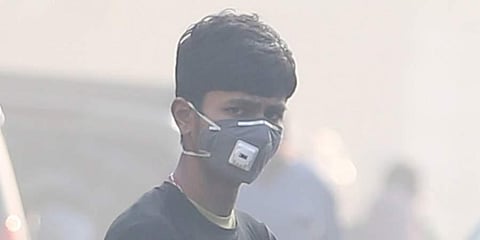

CHENNAI: The polluted air in Chennai resulted in 11,000 deaths last year, according to a Greenpeace Southeast Asia analysis of IQAir data released on Friday. Despite a temporary reprieve in air quality owing to the lockdown, the latest figures from the report underscored the need to act immediately. The need of the hour is to rapidly scale up renewable energy, end fossil fuel emissions, and boost sustainable and accessible transport systems, it said.
According to the report, the ‘cost estimator’ an online tool that estimates the real-time health impact and economic cost from fine particulate matter (PM 2.5) air pollution in major world cities was deployed in collaboration between Greenpeace Southeast Asia, IQAir and the Centre for Research on Energy and Clean Air (CREA). Using real-time ground-level PM 2.5 measurements collated in IQAir’s database, the algorithm applies scientific risk models in combination with population and public health data to estimate the health and economic costs of exposure to air pollution.
The cost estimator estimated air pollution-related economic losses of `10,910 crore in Chennai. The damage is equally worrying in other Indian cities. An estimated 54,000 and 25,000 avoidable deaths in Delhi and Mumbai respectively in 2020 have been attributed to air pollution. Bengaluru and Hyderabad had an estimated 12,000 and 11,000 avoidable deaths respectively due to polluted air,” claims the report.
“Despite recording relatively better air quality this year due to the lockdown, air pollution remains a serious public health issue which also drastically impacts our economy. For the governments of the day, it is crucial that investments are made towards green and sustainable solutions. When we choose fossil fuel over clean energy, our health is put at stake. Polluted air increases the likelihood of deaths due to cancer and stroke, spike in asthma attacks and worsens the severity of Covid-19 symptoms,” Avinash Chanchal, climate campaigner, Greenpeace India, said.